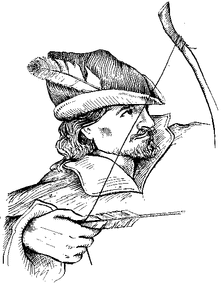Historians' Views Now: Contradicting Interpretations
Biographer T. J. Stiles has a very blunt interpretation of Jesse James. His ideas are as quoted,
"-Jesse James was a forerunner of the modern terrorist, and was not a Robin Hood or social bandit.
- Jesse James, his supporters, and his society were highly politicized, sophisticated, and articulate.
-Jesse James's popularity was a result of wartime loyalties and Reconstruction politics."
His views on Jesse James's life are very negative and summarize that Jesse James is a cold, cruel criminal.
"-Jesse James was a forerunner of the modern terrorist, and was not a Robin Hood or social bandit.
- Jesse James, his supporters, and his society were highly politicized, sophisticated, and articulate.
-Jesse James's popularity was a result of wartime loyalties and Reconstruction politics."
His views on Jesse James's life are very negative and summarize that Jesse James is a cold, cruel criminal.
Gary L. Roberts, on the other hand, has a very optimistic view of Jesse James's life. His ideas are as follows,
"Jesse James was America’s self-proclaimed Robin Hood. What is most remarkable about his mythic stature as a man who robbed the rich and gave to the poor is that he earned that status during his own lifetime... The legacy of Jesse James and his brother, Frank, was more than an avalanche of dime novels and cheap western movies that mythologized their murderous careers. They were the inspiration of countless western outlaws who tried to emulate them, and they somehow won the grudging respect of many who should have known better."
His perspective on the subject are less objective, emphasizing evidence that helps portray Jesse James as a heroic figure that everyone looked up to and admired.
"Jesse James was America’s self-proclaimed Robin Hood. What is most remarkable about his mythic stature as a man who robbed the rich and gave to the poor is that he earned that status during his own lifetime... The legacy of Jesse James and his brother, Frank, was more than an avalanche of dime novels and cheap western movies that mythologized their murderous careers. They were the inspiration of countless western outlaws who tried to emulate them, and they somehow won the grudging respect of many who should have known better."
His perspective on the subject are less objective, emphasizing evidence that helps portray Jesse James as a heroic figure that everyone looked up to and admired.
Back to thesis

